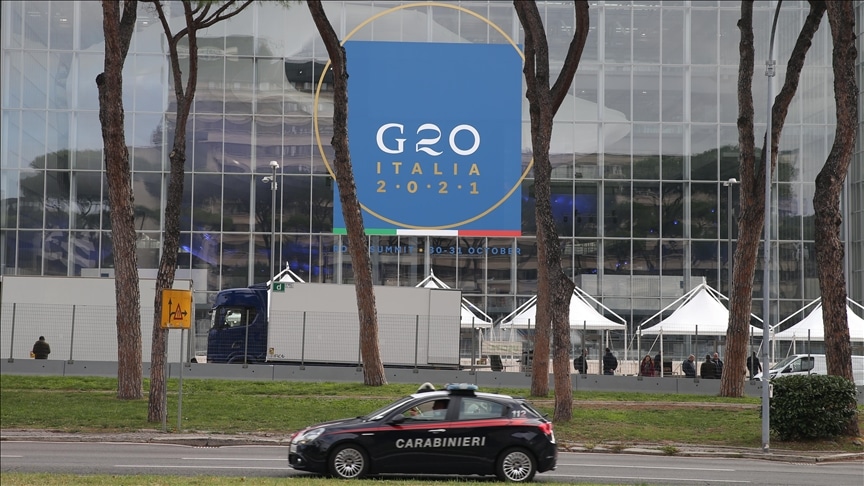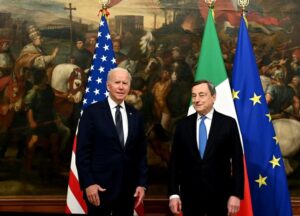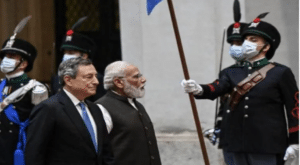World leaders set to talk climate, economy, vaccines at G20 meeting

Climate change and the relaunch of the worldwide financial system will prime the G20 agenda as leaders of the world’s most superior nations meet Saturday, the primary in-person gathering for the reason that pandemic.
Looming over the two-day talks in Rome is stress to make headway on tackling world warming, forward of the important thing COP26 summit kicking off in Glasgow Monday.
The stakes are high, with United Nations Secretary General Antonio Guterres warning G20 leaders on Friday to show “more ambition and more action” and overcome mistrust in order to advance climate goals.
“We are still on time to put things on track, and I think the G20 meeting is the opportunity to do that,” Guterres said.

Security was tight in Rome as US President Joe Biden arrived in the Italian capital anxious to turn a page from the tumultuous Trump years and show that American leadership on the world stage is restored.
Yet the Democrat faces a credibility test as his own signature climate policy — part of a sweeping economic package — is held up amid infighting within his party in Congress.
Absent from the G20 will be Russia’s Vladimir Putin and China’s Xi Jinping, who plan to attend by video link.

Summit host Mario Draghi, the Italian prime minister, has called for a “G20 commitment on the need to limit the rise in temperatures to 1.5 degrees” above pre-industrial levels, the most ambitious target outlined in the 2015 Paris Agreement on climate change.
On Friday, British Prime Minister Boris Johnson — the host of the UN talks next week — gave a dire warning of what could happen if the world failed.
“We are not going to stop global warming in Rome or in this meeting in COP,” he told reporters aboard his plane to Rome. “The most we can hope to do is slow the increase.”
Humanity, Johnson warned, can regress “at extraordinary speed”.
“You saw that with the decline and fall of the Roman Empire, and I’m afraid to say that it’s true today unless we get this right in tackling climate change.”
Complicating the task for the G20 will be disparities between top world powers on tackling global warming.
China, the world’s biggest polluter and responsible for more than a quarter of all carbon emissions, has been accused of sidestepping calls to stop building new coal-fired power plants.
A new plan submitted by Beijing to the UN ahead of COP26 fell short of environmentalists’ expectations, with a target date of 2060 to reach carbon neutrality.
Brazilian President Jair Bolsonaro, meanwhile, has steadfastly demanded that his country be paid for protecting its share of the Amazon.
The world’s biggest rainforest is seen as a vital resource to combat climate change for its ability to absorb fossil fuel emissions.
A security force of over 5,000 police and soldiers has been mobilised for the summit, according to the interior ministry, and several demonstrations are expected.
The summit is being held away from the city centre, after violent clashes erupted earlier this month between protesters and police over the extension of Italy’s coronavirus pass to all workplaces.





